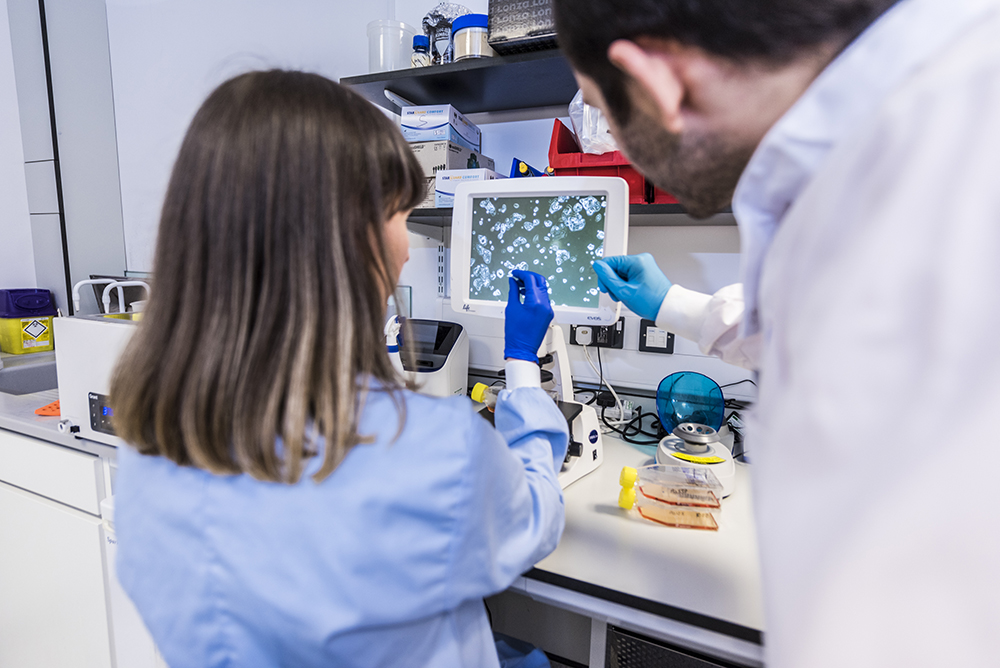Manchester is home to a diverse, energetic and welcoming population. The city has been voted the top UK city to live in, thanks to its strong history of science, thriving nightlight, live music scene, and iconic sports venues.
Here are just a few reasons why Manchester is a great place to live and study…
Research and innovation
Manchester has a history of innovation, a culture of change and a can do attitude that makes discoveries happen. In cancer, research dates back to the early 1900’s beginning with The Christie hospital, pioneering radiotherapy discoveries and forming our own ‘Manchester method’.
Ernest Rutherford changed the world in 1917 when he split the atom at The University of Manchester – a breakthrough that resulted in the development of cancer fighting radiotherapy.
More recently, Manchester has continued to lead the way in cancer research through novel clinical trials testing novel targeted therapies, proton beam therapy and immunotherapy. Moreover, most recently we opened The Paterson Research Building, a new £150 million cancer research facility that brings together the largest concentration of scientists, doctors and nurses in Europe.
Read more about our scientific heritage on our webpage.

The new £150 million Paterson Building in Withington, Manchester

Students relaxing near the University of Manchester Whitworth Building
Dynamic student community
The University of Manchester is one of the most international universities in the UK. Our students come from over 160 different countries so there’s plenty of opportunities to meet and become friends with people from different backgrounds and cultures.
When you graduate, you’ll also join a global network of over 480,000 alumni and can access a range of events, training and networking opportunities.
Entertainment and culture
Manchester has a lively and diverse cultural scene. It hosts a number of intimate live music events, as well as large scale venues such as the Manchester Arena, Manchester Central, Bridgewater Hall and the Apollo. We also enjoy a rich arts scene, including HOME, the Manchester Art Gallery, Whitworth Art Gallery and numerous theatres showcasing the best of traditional and contemporary culture.
The city’s Gay Village centres on Canal Street, which is a lively hub of entertainment and culture and hosts Manchester Pride each August bank holiday weekend.
Shopping is equally eclectic, from the designer boutiques of King Street and Spinningfields to high street chains and the bohemian and vintage offering of the Northern Quarter.

The icon yellow trams in Manchester

People shopping on Market Street
Housing and transport
The Manchester Cancer Research Centre is around a 15-minute drive to Manchester International Airport, making it ideal for researchers who travel regularly for work. You can also reach the airport within 20 minutes from the city’s three major train stations: Manchester Piccadilly, Manchester Oxford Road and Manchester Victoria. London is around two hours away by train and with the arrival of High Speed 2 (HS2) to Manchester in 2032 we will be linked to London via train in less than 70 minutes.
Manchester also has an excellent network of local bus, rail and tram services, all operating at very reasonable costs. This includes tram services to West Didsbury, which is within a 10-minute walk of the MCRC, and bus services that arrive and depart directly outside the building.
There is also a wide range of housing to choose from when coming to Manchester, ranging from duplex flats in the city centre to Victorian terraces in leafy Didsbury.
City of sport
Football fans are truly spoilt for choice in Manchester, with both Manchester United’s Old Trafford group and Manchester City’s impressive Etihad Stadium only a stone’s throw away.
However, it’s not just football that you can experience in Manchester. Spend a day watching cricket at Lancashire Country Cricket club or see the Sale Sharks in action in a Rugby Union game. Thanks to Manchester’s 2002 Commonwealth Games legacy means you can also experience the Manchester Aquatics Centre, the Regional Athletics Arena and Manchester Velodrome.
The University of Manchester runs numerous sports programme for staff and students, with over 40 sports clubs to choose from that cater for all levels, from beginners to elite athletes.

Manchester United Football Club's Old Trafford Stadium

Fans watching Manchester City Football Club at the Etihad Stadium
Navigation
Study
Discover the postgraduate cancer research training opportunities available in Manchester.
Virtual Campus Tour
Take the University of Manchester virtual tour and explore our campus from wherever you are in the world.
Virtual City Tour
Can't make it to the city? No problem! Take the University of Manchester Virtual tour to discover more delights from the city.



